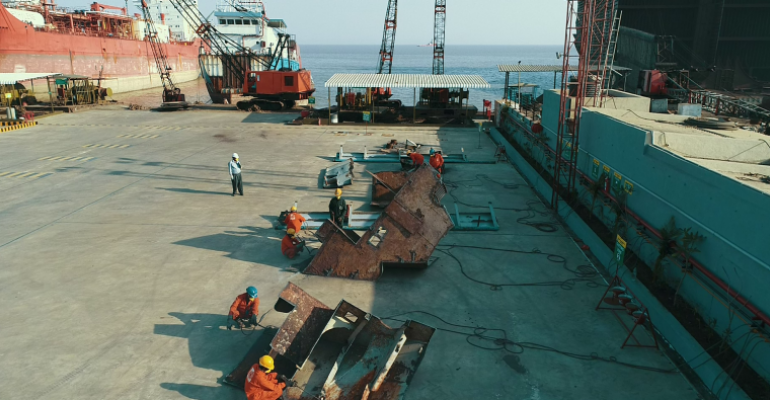In its weekly report on the prevailing market, cash buyer GMS said that lockdown measures, officially in place until 4 May, could well be extended further in line with many parts of Europe and Asia where shutdown and quarantine measures are set to remain in place until at least 1 June.
GMS noted “some small concessions” in India this past week, however. Some local recycling yards that have social distancing strategies in place and ensure that personnel have access to appropriate PPE have been allowed to re-start some cutting activities “slowly and responsibly”. However, “this does not mean that India is open by a long shot as all flights are still grounded, foreigners are denied entry, and any vessels arriving Alang for recycling are not being permitted into port limits, with no boardings, beachings and deliveries taking place yet”.
The last time GMS reported indicative demolition prices was in its 20 March report when markets in the Indian subcontinent were described as “weak” and in Turkey as “crashing”. Indicative prices in India at that time were $350 per light displacement ton for dry bulk tonnage, $360 for tankers and $380 for containerships.
Prices in Bangladesh were $10 less and in Pakistan $20 less across the three sectors. Prices paid by Turkish recyclers, meanwhile, were typically around $200 for bulk carriers and $210 for the two other ship sectors.
Buoyant ship recycling activity was expected this year as owners of older tonnage came to terms with new fuel regulations and ballast water installation requirements.
Copyright © 2024. All rights reserved. Seatrade, a trading name of Informa Markets (UK) Limited.
Add Seatrade Maritime News to your Google News feed.  |

